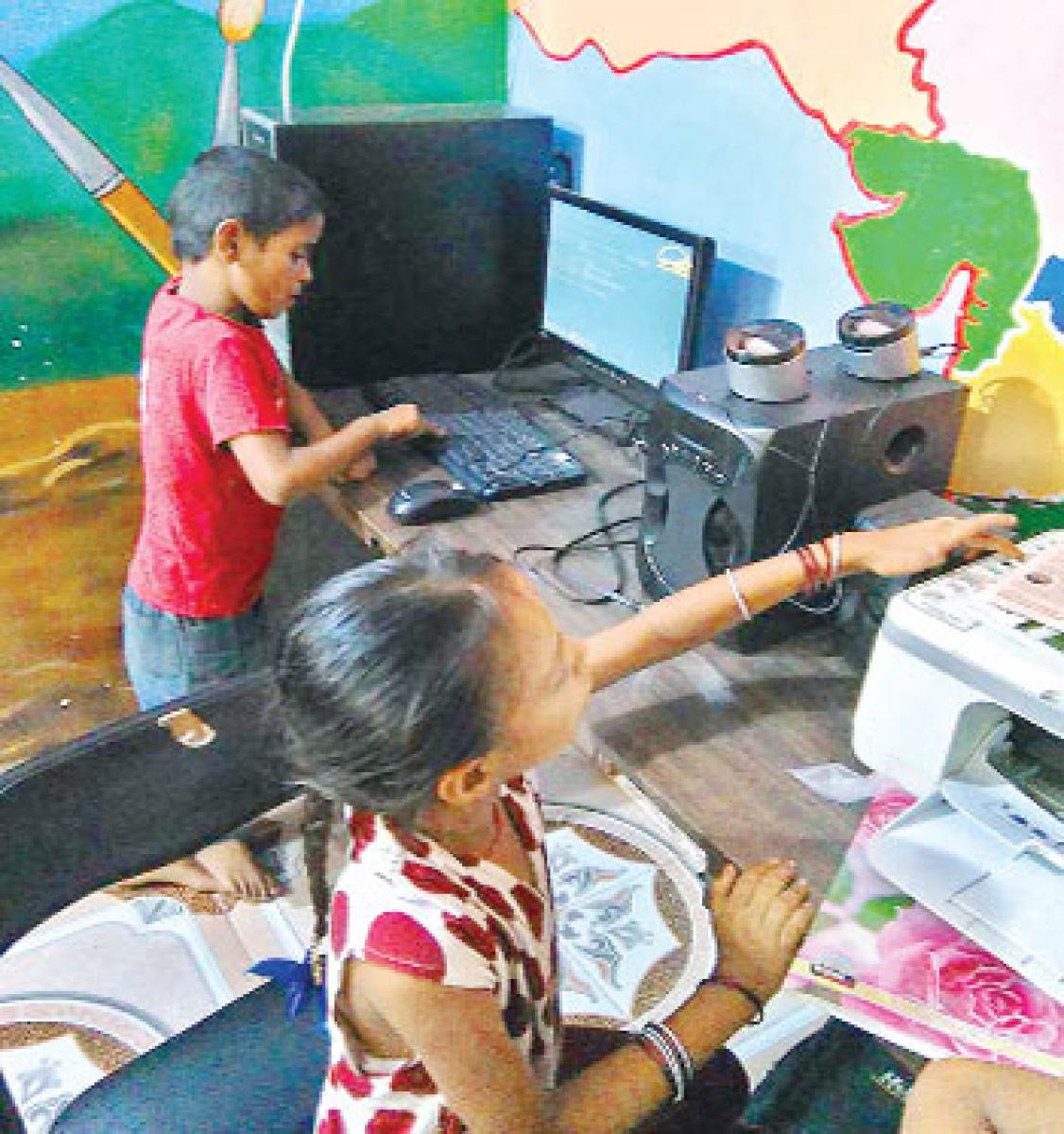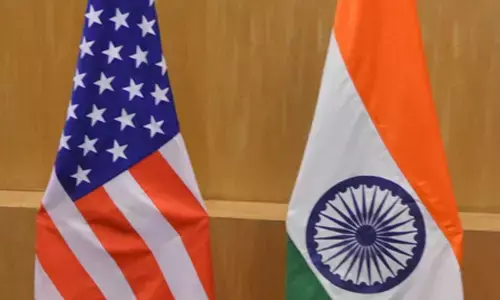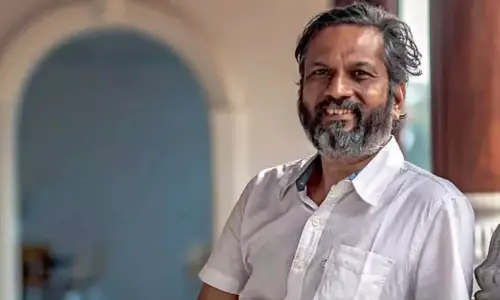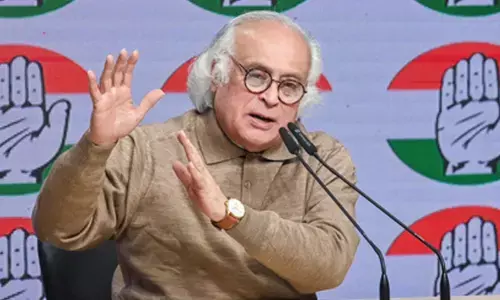He quit CA to teach slum kids

A group of children are sitting on broken benches, writing the English alphabet in their respective notebooks.
.jpg) A group of children are sitting on broken benches, writing the English alphabet in their respective notebooks.
A group of children are sitting on broken benches, writing the English alphabet in their respective notebooks.
Watching their progress is a hawk-eyed young man. Prince Tiwari has been educating these children, right under this flyover, since 2011.
It was only two months ago that he was able to afford a rented place where he now holds his free tutorial classes.
It is a 10 minute walk from the flyover to the house he has rented. The house has just two rooms and a few computers on a side table. Prince points at some folding chairs.
"I just got these chairs few days ago. It will be easy for the kids to study now." The 21-year-old was a student himself when he first met these children begging for a rupee or two.
Every time they caught his attention, he thanked God and his parents for the comfortable life he led. Only education, he thought, could give them a better life.
One day, after college -- he was studying commerce at Thakur College in Kandivali, a north Mumbai suburb -- he quietly followed few kids begging on the streets. They led him to the highway.
"When I met them in 2011, I was shocked to see how they live. Most people sold utensils in exchange for clothes. A few were daily wage workers. Their children went to a municipal school -- not to study, but to eat the mid-day meal," he says.
He checked their books and was horrified to see they had learnt absolutely nothing. "A girl in fourth standard didn't know to read, write or say the English alphabets," he says.
Prince was 17 years old then. He wanted to become a chartered accountant and attended a coaching class in Andheri, another Mumbai surburb. He was also interning at Deloitte as junior accountant.
"To take the final examination in college, an internship is compulsory," he says. His college did not stress on attendance so Prince spend part of his day teaching these children.
"Initially, it was difficult to convince the kids and their parents. Though some kids were interested in studying, they didn't have anyone to guide them.
A few parents said, 'Padhai karke kya karega, baad mein humare jaise hi kaam karna padega (How will studies help them; later on, they have to do what we are doing)."
Prince refused to give up. To break the ice, he took milk and biscuits for the children daily. As they ate, he would chat with them. Gradually, they would gather at one place under the flyover.
Then, he began teaching them. It was a struggle. Every day. But his effort began to bear fruit. After two-three months, the children began to take their studies seriously.
In his 'School on Street' -- that's what Prince calls it -- he took in children from the ages of 3 to 15 years. He would teach them from 7 to 11 am, then leave for work. On weekends, he spent the whole day teaching.
"There were only 10 to 12 kids in the beginning, but the number soon increased." Prince taught them English, Mathematics, Science and Hindi. He provided them with notebooks, pens, pencils, erasers, rulers.
Some of his college friends stepped in to teach art and craft. After completing his graduation and internship, he was offered jobs by Deloitte and Jindal Steel.
He turned them down. By now, the children were a part of his life and he felt responsible for their future. His parents, who had stood by him earlier, were unhappy.
They felt he was compromising his career. They wanted him to be independent... and help the kids with the money he earned.
Prince knew that once he had a full-time job, he would not be able to help the children. "So what if I don't end up having a successful career like my friends?" he asks. "I am happy when I see my kids shine. That will be my success."
He worked on a contract basis to keep the money coming in and started looking for a place he could rent for his 'classes'. Although he was ready to pay, housing societies were against renting a flat for street children.
Local corporators warned him against carrying on with his 'illegal' activities under the flyover. "I asked them to help me find a place, but they never paid heed to my request. They could have easily provided shelter to the kids and their parents.
I had no choice but to keep tutoring the children under the flyover," he says. He wanted to put the children, who were studying in a municipal school, in a good school. Again, he ran into roadblocks.
It was difficult to get a transfer certificate from the municipal school. Prince could not provide any kind of certification himself; he was just a tutor.
It was even more difficult to find a school that was ready to admit these children even though they had improved tremendously in their studies. He was shattered.
"Basic education till Class X is equal for everyone, from children of billionaires to children of those who live under a flyover. You can't deprive a child of that right," he says.
It was only last year that 24 students finally got admission in Thakur Shyamnarayan High School, an English medium school. The admission fees were Rs 7 lakhs.
Prince gave the entire amount he had saved during his three-year internship to the school. But he needed more funds. "God was kind," he says.
"A few employees from TNT India Private Limited contributed Rs 60,000 for the children."By now, Prince was teaching 100 children. The rest went to a municipal school nearby.
This year, 49 more children took admission in Thakur school. "Parents could see how well their children were performing at school. Those who were against sending their kids to the new school were now keen to get them admitted there," says Prince proudly.
The children don't fail to keep their Prince bhaiyya happy. One of his students is now preparing for IIT entrance exams, while the others study regularly to get good grades.
Prince now dreams of opening a school and helping under-privileged children from different parts of the city. "Street children should be treated like other kids," he says. "They might be poor but they are innocent.
People usually think they are thieves, but I feel they are very trust-worthy. It's been five years and, till date, neither the kids nor their parents touch my belongings. I love them for their simplicity."
Next Story














